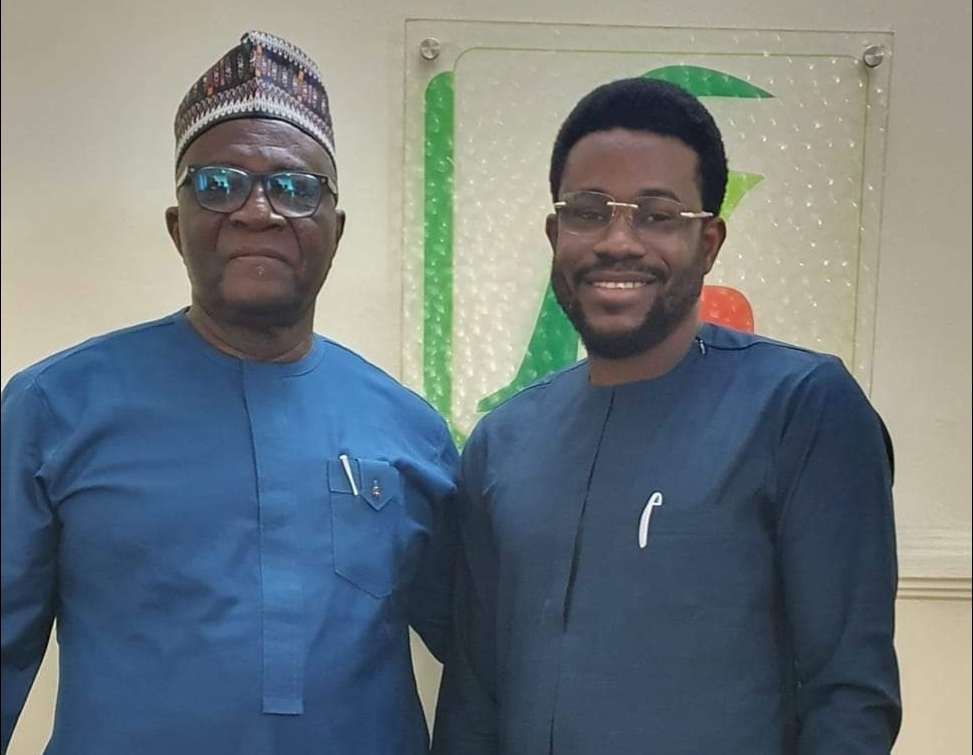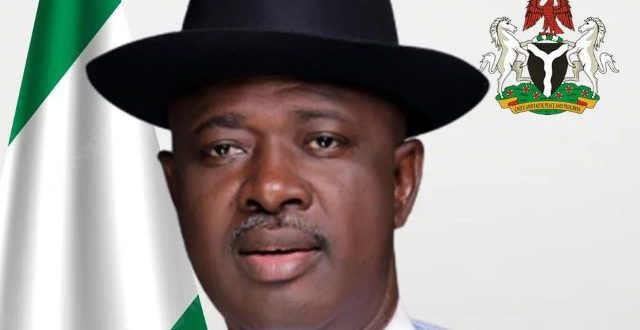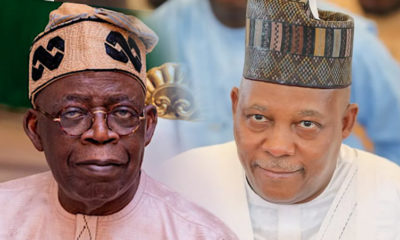Opinion/Feature
BAYO ONANUGA IN THE EYES OF A MENTEE

By DESMOND UTOMWEN
My first face-to-face meeting with Mr Bayo Onanuga was in 2005 in Lagos.
He asked, “Who are you, how may I help you?”
“I am Desmond, sir.”
“Oh, the man from Abuja, you’re so young?”
“Thank you, sir,” I responded as he waved me to a seat.
I told him that I was asked to come to Lagos and he said yes, he was aware.
“Information got to us that you were about to kill a story…”
My eyes were as wide as saucers. I did not know what killing a story meant. From his explanation, I was stunned that such a thing could happen. In any case, was a story that was already on the streets “killable”? It was rather strange to me that somebody could level such an allegation against me!
Trouble started for me after we came out with a cover, The Greedy Police Boss, in 2005 in TheNEWS Magazine. I was still young then and in my formative years in journalism.
I went to Police Force Headquarters in Abuja to continue with my normal work as one of the correspondents. I wouldn’t know who knew me there and called my boss in Lagos that I was in Force Headquarters. The next thing I got was a call from one of my Senior Editors, he asked me where I was and I said I was at work.
He then said that I should take the next available flight to Lagos. I didn’t know what was happening, so, I took a flight to Lagos. On getting to Lagos, I met Mr. Onanuga. I think he understood better, he saw the innocence in me. He then asked what I was doing at the Force Headquarters and I told him that was my beat and I was there on my normal routine.
“Ha! You should not have gone there,” he advised.
He then gave some lectures, he said I should not have gone there because we had just done “a very hot story” on the Police Inspector General, Tafa Balogun and with that, what I should have done was to hibernate for a while because those guys would have been so angry and in anger, they could be looking for a scapegoat.
He, however, said that he would not blame me because I was still very young and new. He said people that did gorilla journalism would understand better. (Of course, I wasn’t part of the gorilla journalism that was the practice during the Military Rule for which the likes of Mr. Onanuga were heroes and legends).
He said I should have hibernated because those guys could be angered and at that moment they could have been looking for a fall guy.
Finally, he said, “I believe you”.
He then started advising me. After the advice, he started chatting with me, that he’s been seeing my stories, he liked my doggedness, the way I went after stories.
He said there was a particular interview I did that he so much liked, that was the interview I did with Kema Chikwe, who was the Minister of Aviation then.
Mr. Onanuga then went further to assign me to cover the National Assembly for him. Right there, I made a request that I would need a letter requesting accreditation to the National Assembly and he gave me one. That kind of increased my confidence in doing the job.
Mr. Onanuga would come down to your level to relate with you. He is a very calm person and a great teacher with so much patience. He knows how to impact knowledge, and bring out the best in you. The first impression you may have of him from the outside is that of a very tough person. I had that. The very first time I saw him, I wondered what kind of tough person he is.
There was a time Mr. Onanuga and I travelled to Kaduna and we lodged at NAF Hotel. He advised me a lot about the profession. He advised me not to blackmail anybody to make money. He also told me how difficult it is for a journalist to have too many friends, that it would become a liability for the journalist.
He counselled. “When you have too many friends; particularly those with baggage, they will expect so much from you, it will influence your story judgment and what you do as a journalist. That is when people will start mounting pressure on you to kill or to do certain reports. You must be very firm in doing your job and must not maliciously write against anybody because the job is not to maliciously attack anybody, but to speak the fact, even if people do not agree with you at that moment, they will agree in years to come. This is because the truth will always overcome lies, they will realize that you were truthful with your report.
Yes, Mr. Onanuga is a stickler to professional ethics and he combines compassion and efficiency and I’m glad he mentored me. Of course, I cut my teeth under Mr. Onanuga, I learnt so much from him; I came into the profession as a greenhorn. He is an editor’s editor and can turn the most egregious piece of writing into mellifluous prose.
As one of his editors, Ademola Adegbamigbe wrote, “Then, he would call you to his office (he would never dress a member of his staff down in the presence of others), tell you what you did not get right, and then let you know how you could improve. He possesses a clear professional vision, sees ahead of his contemporaries, and, thus, takes proactive steps to avert disaster.”
Opinion/Feature
Downstream Deregulation: Between Obasanjo’s Half-measures And Tinubu’s Bold Leadership

Opinion/Feature
UNCOMMON SCHOLAR, EXCEPTIONAL ADMINISTRATOR: MY TRIBUTE TO PROF. OLOYEDE AT 70

By President Bola Tinubu
As Professor Ishaq Oloyede turns 70 tomorrow, October 10, I pay a special tribute to this astute administrator, educator, author, and scholar, currently the Joint Admissions and Matriculation Board (JAMB) Registrar.
As the former Vice Chancellor of the University of Ilorin, Prof. Oloyede’s invaluable contributions to the nation through academia and public-sector administration have significantly impacted the academic community.
ALSO READ: Tinubu Congratulates Zainab Shinkafi-Bagudu On Her Election As President, UICC
His impactful tenure at the University of Ilorin, during which he introduced landmark ideas and innovations that helped the institution attain enviable heights, is on record.
Through patriotic dedication and commitment to his craft, Prof Oloyede imparted knowledge and character to thousands of students who underwent his teaching during his glorious and impactful academic career.
Indeed, the bedrock of development lies in education. Developing nations, including Nigeria, are in dire need of more scholars like Prof. Oloyede. His selfless sacrifices and innovative approaches to learning and leadership give hope for a brighter future.
Perhaps more remarkable is Prof. Oloyede’s transformative leadership at JAMB. He pioneered and sustained a series of reforms and technological innovations that have made the admission process in Nigeria transparent and credible.
In his eight years of stewardship at the board, thus far, Prof. Oloyede has demonstrated an uncommon commitment to financial integrity and accountability in public service. He has also raised the bar in administration and management.
I am proud of Prof. Oloyede’s accomplishments.
The nation owes the Professor of Islamic Jurisprudence a debt of gratitude for transforming JAMB, traditionally a non-revenue-generating government agency, into a consistent contributor to the national treasury through efficient financial management. His contributions to JAMB are invaluable and greatly appreciated.
On this occasion of his 70th birthday, I join members of the academic community, students, JAMB staff, and well-wishers in celebrating this scholar who, in words and deeds, has also done a lot to propagate the Islamic religion.
I pray that Almighty Allah will continue to honour the distinguished professor with health, wisdom and strength to serve the nation for many more years.
Opinion/Feature
Clarification On NNPCL Refinery Operations

By Sen. Heineken Lokpobiri PhD
My attention has been drawn to statements made by Engr. Kamoru Busari, Director of Upstream in the Ministry of Petroleum Resources, who represented me at a recent conference in Lagos. I wish to categorically state that the claim that I directed the Nigerian National Petroleum Company Limited (NNPCL) to stop running its own refineries and focus solely on equity participation in other refineries is false. This does not represent my position as Minister overseeing the oil sector, nor does it reflect the stance of the Federal Government.
It is important to clarify that NNPCL is a company governed under the Companies and Allied Matters Act (CAMA), with a functional board and management. The Ministry of Petroleum Resources does not control or run NNPCL, as it operates independently like any corporate entity.
ALSO READ: NNPC/Seplat JV’s “Eye Can See” Programme Restores Vision, Hope In Imo
The oil and gas sector is fully deregulated, and the Nigerian government remains committed to promoting in-country refining. We encourage companies, including NNPCL, to operate independently, following global best practices. While we provide strategic guidance, we do not interfere directly in the operations of these companies.
I reaffirm our commitment to supporting the growth and independence of NNPCL, ensuring that its operations are in line with international standards for efficiency and transparency and profitability.
Sen. Heineken Lokpobiri PhD, Minister of State Petroleum Resources (Oil), wrote from Abuja, Nigeria












